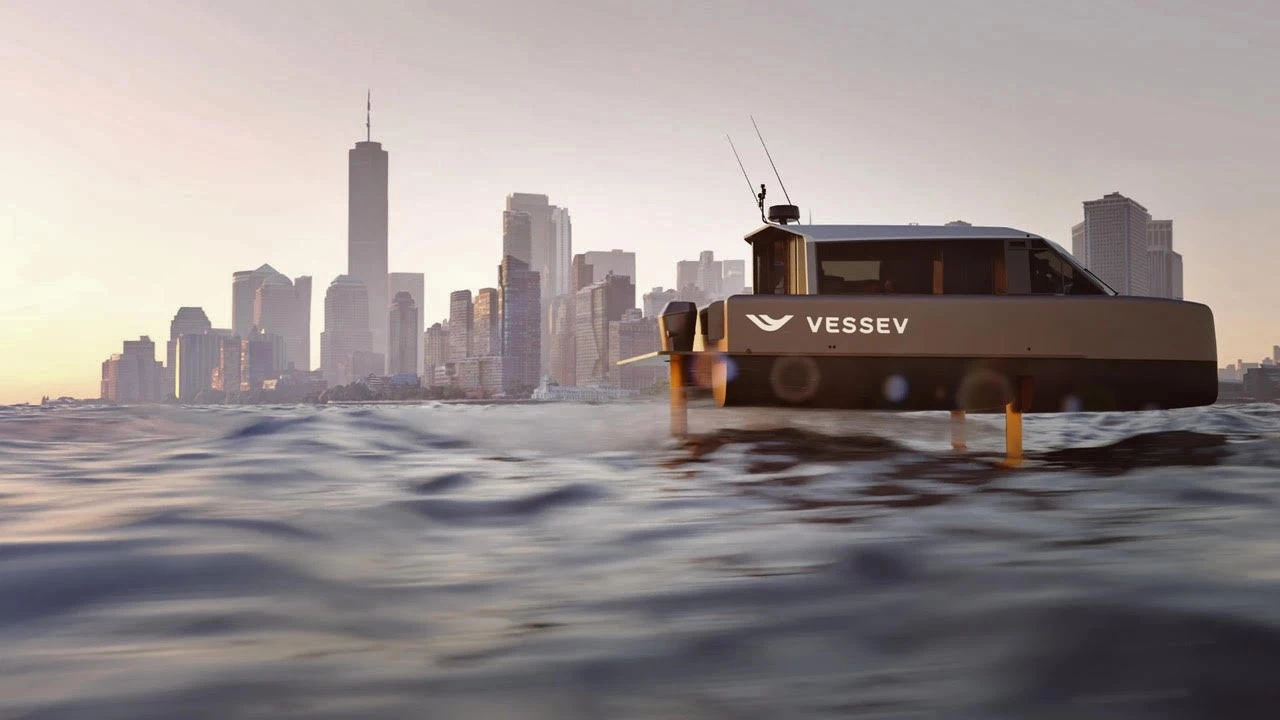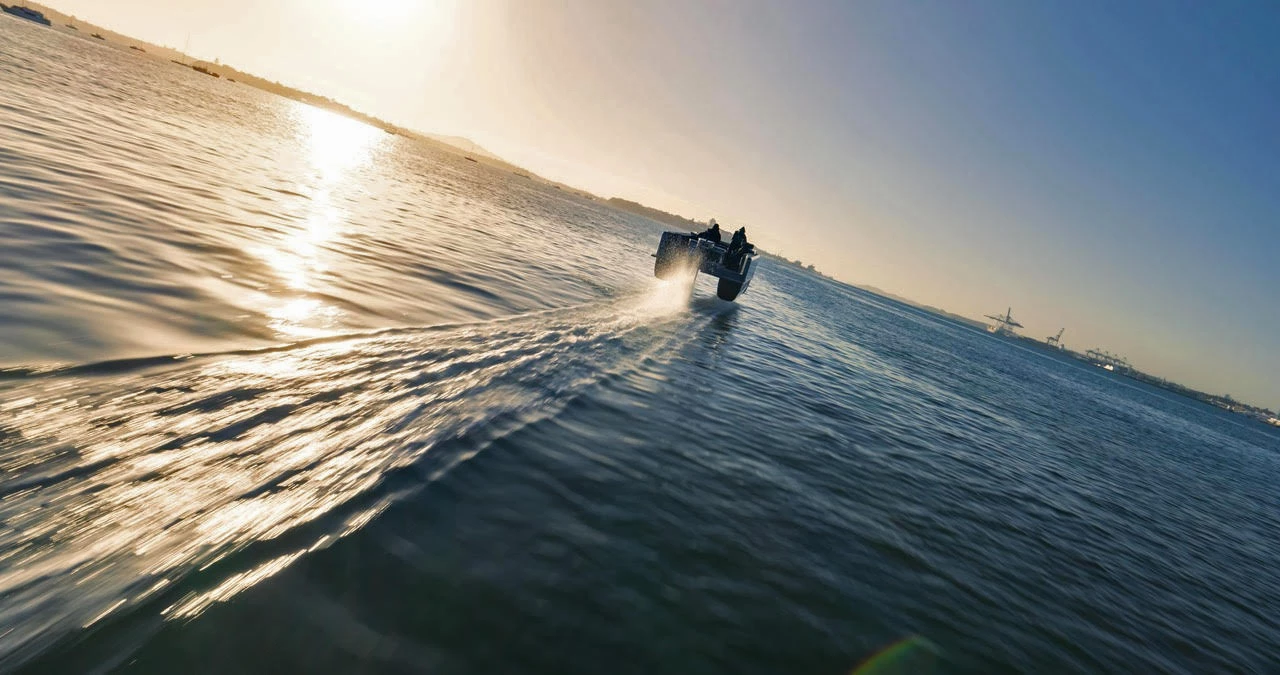Marinas already have power/charging infrastructure, so finding power is no issue. If DC charging power is available, the Vessev VS-9 can charge at a rate of 0.8 nautical miles (0/9 miles/1.5 km) of foiling range per minute. But that's only part of what makes the VS-9 so special.
What makes it really special is the use of foiling technology. The same technology you see on America's Cup racers. At speed, the hydrofoil will raise the hull of the VS-9 about 3 ft (1 m) above the water's surface and allow it to fly at 25 knots (28 mph, 45 km/h) while being so smooth, you and your nine other passengers can pour yourself a glass of bubbly without the risk of spilling a single drop.
It uses an ultra-high authority hydrofoil system with foils that can adapt their shape using high-precision flaps, which allows the vessel to glide near-effortlessly through rough weather and water. This also makes it exceedingly fast and efficient. A chase boat has accompanied the VS-9 throughout its testing phase, with the VS-9 costing 25 times less for fuel compared the the chase boat. Its creators say the VS-9 can save as much as 95% in fuel costs versus traditional diesel- or gasoline-powered vessels, as well as substantially less in mechanical costs over the lifetime of its fossil fuel counterparts.

Eric Laakman, the CEO of Vessev, was a lead on the Apple Watch program before leaving Apple in 2018 to fulfill his dream of sailing the world. A year and 30,000 nautical miles (34,500 miles/55,500 km) later, he ended up in New Zealand and joined the team at Vessev.
"We are in the earliest stage of a global transition to sustainable energy use," Laakman said. "There are 33 million vessels in the world today, with sustainable vessels representing the smallest fraction. Through significant enhancements in efficiency, hydrofoiling will play a key role in this once-in-a-generation shift. We are calling it the 'Rivian of the Sea.'"
Vessev announced today that it'll be partnering with New Zealand's largest ferry company, Fuller360, to introduce the "world’s first electric hydrofoiling vessel certified for premium tourism use," which will supplement its existing fleet of ferries.
Mike Horne, Fullers360’s CEO, stated, "It’s our intention for Fullers360 to be 100% electric or hydrogen operated by 2040, and foiling is absolutely a part of that vision for us... with the VS-9 being the first fully electric passenger vessel to operate in Auckland."
The VS-9 is 29.4 ft (8.95 m) long and weighs 8,000 lb (3,629 kg) fully loaded with it's maximum of 10 passengers. It has a 25-knot (28-mph/45-km/h) cruising speed with a top speed of 30 knots (35 mph/55 km/h). At cruising speed, its battery range is up to 50 nautical miles (57 miles/93 km). Several have already been sold with a starting price of US$620,000.







